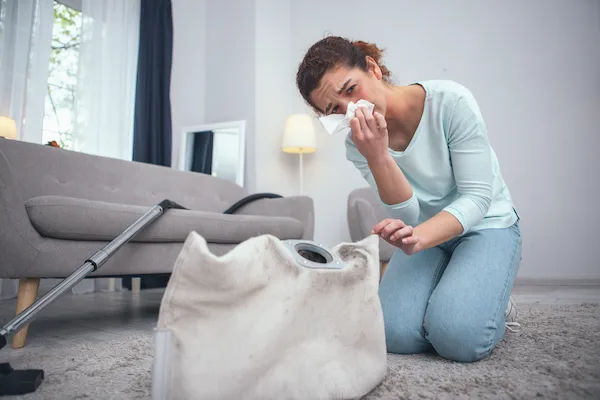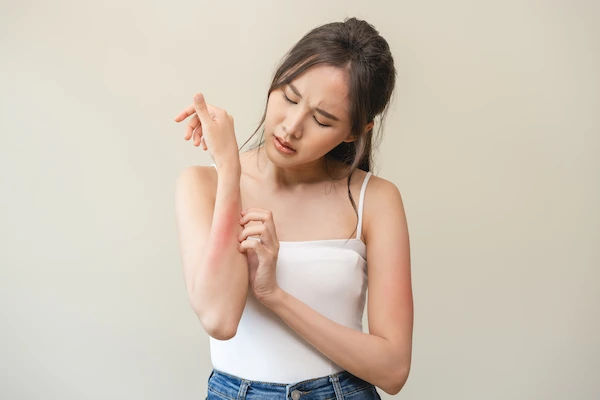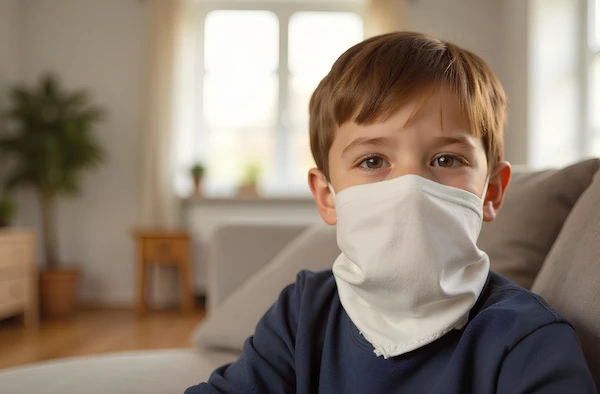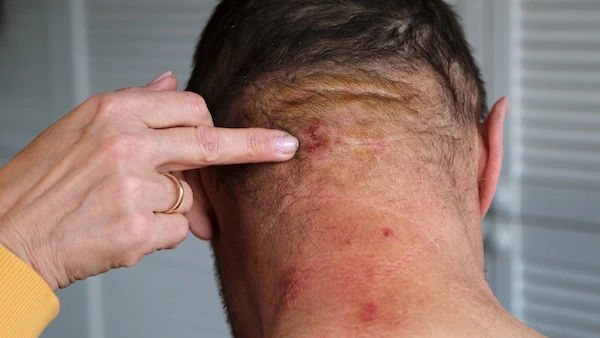What Causes Allergies?
Know all about allergies, causes, common allergens, who gets allergies, how it affects your health, and learn to manage and prevent allergies.

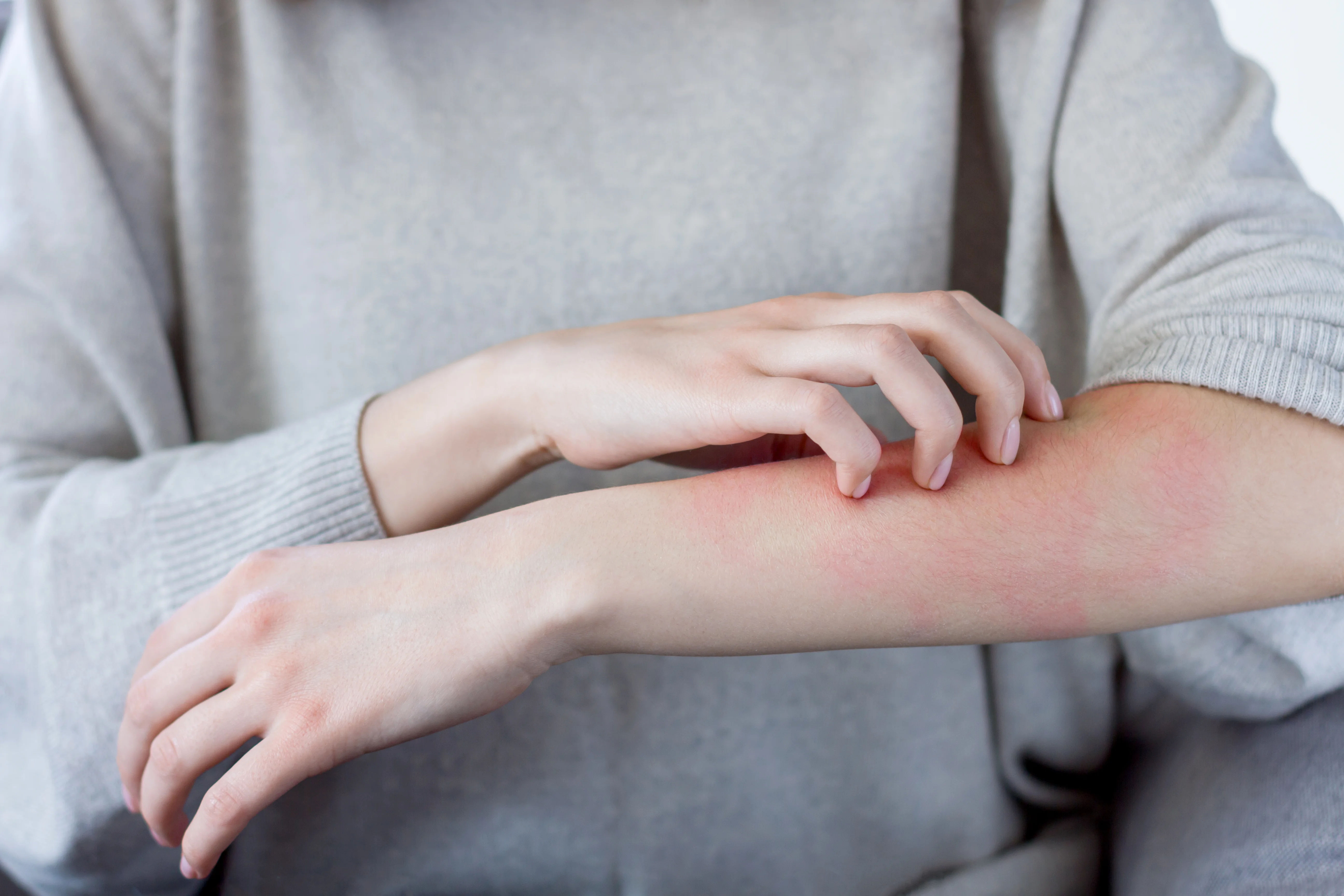
What Causes Allergies?
Introduction
Allergies are a common health issue that affects millions of people worldwide. If you've ever sneezed uncontrollably around pollen, broken out in hives after eating certain foods, or felt your throat tighten after a bee sting, you've experienced an allergic reaction. But what exactly causes allergies, and why do some people suffer from them while others don’t? Let’s break it down in simple terms.
Understanding Allergies
An allergy is your immune system’s overreaction to a harmless substance (called an allergen). Normally, your immune system fights germs like bacteria and viruses to keep you healthy. But in people with allergies, the immune system mistakes harmless things—like pollen, pet dander, or certain foods—as dangerous invaders and attacks them. This reaction leads to allergy symptoms.
Common Allergens (Triggers)
Allergies can be triggered by various substances, including:
1. Airborne Allergens
Airborne allergens include:
- Pollen (from trees, grass, or weeds)
- Dust mites (tiny bugs in household dust)
- Mold spores (found in damp areas)
- Pet dander (skin flakes from cats, dogs, or other animals)
These often cause hay fever (allergic rhinitis), leading to sneezing, a runny nose, itchy eyes, and congestion.
2. Food Allergens
Common food allergies include:
- Milk
- Eggs
- Peanuts & Tree nuts
- Shellfish
- Wheat & Soy
Food allergies can cause mild reactions (itching, hives) or severe ones (swelling, difficulty breathing, called anaphylaxis).
3. Insect Stings & Bites
Stings and bites due to:
- Bee or wasp stings
- Mosquito bites
- Fire ant bites
Some people develop severe swelling or anaphylaxis from insect venom.
4. Medications
Certain drugs (like penicillin or aspirin) can trigger allergic reactions, ranging from rashes to life-threatening responses.
5. Skin Contact Allergens
Skin contact allergens include:
- Latex in gloves, balloons
- Nickel in jewellery, watches
- Cosmetics or perfumes
These can cause contact dermatitis, leading to redness, itching, or blisters.
Consult a Top general practitioner for the best advice
Why Do Some People Get Allergies?
The exact reason why some people develop allergies isn’t fully understood, but several factors play a role:
1. Genetics
If your parents have allergies, you’re more likely to develop them too.
2. Environment
Growing up in overly clean environments (the hygiene hypothesis) may make the immune system more prone to overreacting to harmless substances.
3. Early Exposure
Babies exposed to certain allergens early (like peanuts in controlled amounts) may have a lower risk of allergies later.
4. Immune System Sensitivity
Some people’s immune systems are just more reactive to allergens.
How Allergies Affect Your Health?
Allergic reactions can range from mild to severe:
- Mild: Sneezing, itching, watery eyes
- Moderate: Rash, swelling, stomach upset
- Severe (Anaphylaxis): Trouble breathing, dizziness, rapid pulse. This is a medical emergency.
Long-term untreated allergies (like chronic hay fever) can lead to:
- Sinus infections
- Asthma flare-ups
- Eczema (skin irritation)
- Sleep problems (due to congestion)
Managing & Preventing Allergies
While allergies can’t always be cured, they can be managed effectively. Here’s how:
1. Avoid Triggers
- Keep windows closed during high pollen seasons.
- Use dust-proof covers on mattresses and pillows.
- Wash your hands after petting animals.
- Read food labels carefully.
2. Medications
- Antihistamines like cetirizine block allergy symptoms.
- Nasal sprays reduce congestion.
- Epinephrine auto-injectors for severe allergies treat anaphylaxis.
3. Allergy Shots (Immunotherapy)
For long-term relief, doctors may recommend allergy shots, which gradually desensitise your immune system to allergens.
4. Home Remedies
Saline nasal rinses help clear pollen from the nasal passages.
Honey (local) may help with mild pollen allergies, though evidence is limited.
Air purifiers reduce indoor allergens.
When to See a Doctor?
Consult a doctor if:
- Symptoms interfere with daily life.
- Over-the-counter meds don’t help.
- You experience wheezing, throat swelling, or dizziness (seek emergency care).
Final Thoughts
Allergies can be frustrating, but understanding their causes and managing them properly can make a big difference. Whether it’s avoiding triggers, taking medications, or seeking professional help, you have options to live comfortably. Stay informed, stay prepared, and breathe easy.
Consult a Top general practitioner for the best advice
Consult a Top general practitioner for the best advice

Dr. D Bhanu Prakash
General Practitioner
10 Years • MBBS, AFIH, Advanced certificate in critical care medicine, Fellowship in critical care medicine
Hyderabad
Apollo 24|7 Clinic, Hyderabad

Dr D M Karthik
General Practitioner
4 Years • MBBS, Fellowship in Diabetes Mellitus, Advance certificate in Diabetes Mellitus, Derma Nutrition Certification
Visakhapatnam
Apollo 24|7 Clinic - Andhra Pradesh, Visakhapatnam

Dr. M L Ezhilarasan
General Practitioner
6 Years • MBBS
Visakhapatnam
Apollo 24|7 Clinic - Andhra Pradesh, Visakhapatnam

Dr. Madhuri Sai Sreepada
General Practitioner
9 Years • MBBS
Hyderabad
BRIGHT SMILES MEDICARE & DENTAL CARE, Hyderabad
Dr. Uma Bharathi
General Practitioner
6 Years • MBBS
Chokkikulam
TVS LAKSHMI HOSPITAL, Chokkikulam

